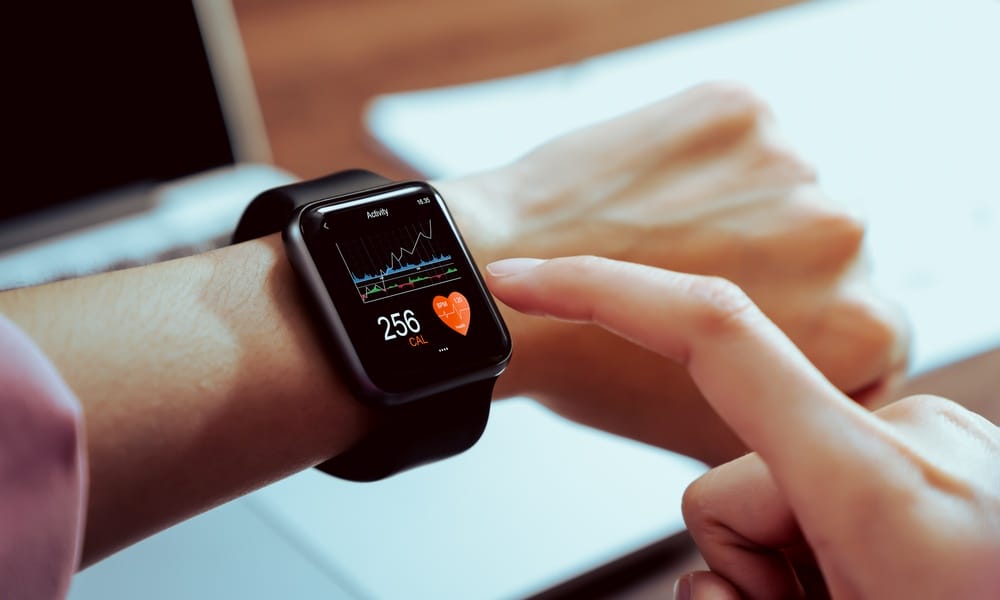The world of healthcare is undergoing a profound transformation, driven by technological innovation that enhances patient care, streamlines operations, and improves outcomes. This article explores five essential technologies that are reshaping the healthcare sector. Understanding their impact is key to navigating the future of medicine and patient management.
Electronic Health Records
Electronic health records (EHRs) have formed a digital foundation for modern healthcare. They provide a real-time, patient-centered record that makes information available to authorized users instantly and securely.
By digitizing patient charts, EHRs reduce the risk of medical errors, eliminate redundant testing, and support better-coordinated care among different providers. This comprehensive digital history allows clinicians to make more informed decisions, track patient progress over time, and ensure a higher standard of care.
Telehealth and Remote Patient Monitoring
Telehealth has expanded access to care by allowing patients to consult with healthcare professionals remotely. Using video conferencing and digital communication tools, providers can diagnose conditions, manage chronic illnesses, and offer follow-up care without requiring an in-person visit.
This is complemented by remote patient monitoring devices that collect health data, such as blood pressure and glucose levels, from patients’ homes. These technologies improve patient convenience and enable continuous monitoring, which is crucial for managing long-term health issues.
Artificial Intelligence
Artificial intelligence (AI) is another excellent example of essential technologies in the healthcare sector. AI has revolutionized medical diagnostics by analyzing complex medical data with incredible speed and accuracy. AI algorithms can review medical images such as MRIs and X-rays to identify patterns that may be invisible to the human eye, helping radiologists detect diseases earlier and more precisely.
AI also plays a role in predictive analytics, helping to identify patients at high risk for certain conditions. This allows for proactive interventions and personalized treatment plans, shifting the focus from reaction to prevention.
Automation in Healthcare Logistics
Automation is streamlining the logistical and operational aspects of healthcare across pharmacies and laboratories. Automated systems handle repetitive tasks, minimizing human error and freeing up skilled professionals to focus on patient-facing duties.
For instance, robotic systems can dispense medications, sort lab samples, and manage inventory with high efficiency. Larger facilities can also use specialized conveyor systems, including turn curve and regular belt systems. Utilizing these technologies will help you develop a more effective internal logistics network.
Wearable Technology
Wearable devices, such as smartwatches and fitness trackers, have empowered individuals to take a more active role in their own health. These devices continuously track vital signs, activity levels, sleep patterns, and other health metrics.
The data provides valuable insights for the user and their healthcare provider, facilitating a more holistic view of a patient’s well-being outside of clinical settings. This continuous stream of information supports preventative care and encourages healthier lifestyle choices.
These five technologies are fundamental to the evolution of modern healthcare delivery. Their integration leads to more efficient, accurate, and patient-centric care models. As innovation continues, these tools will become even more integral to achieving better health outcomes globally.
- Henry Johnson
- Henry Johnson
- Henry Johnson
- Henry Johnson
- Henry Johnson
- Henry Johnson
- Henry Johnson
- Henry Johnson
- Henry Johnson
- Henry Johnson
- Henry Johnson
- Henry Johnson
- Henry Johnson
- Henry Johnson
- Henry Johnson
- Henry Johnson
- Henry Johnson
- Henry Johnson
- Henry Johnson
- Henry Johnson
- Henry Johnson
- Henry Johnson
- Henry Johnson
- Henry Johnson
- Henry Johnson
- Henry Johnson
- Henry Johnson
- Henry Johnson
- Henry Johnson
- Henry Johnson
- Henry Johnson
- Henry Johnson
- Henry Johnson
- Henry Johnson
- Henry Johnson
- Henry Johnson
- Henry Johnson
- Henry Johnson
- Henry Johnson
- Henry Johnson
- Henry Johnson
- Henry Johnson
- Henry Johnson
- Henry Johnson
- Henry Johnson
- Henry Johnson
- Henry Johnson
- Henry Johnson
- Henry Johnson
- Henry Johnson
- Henry Johnson
- Henry Johnson
- Henry Johnson
- Henry Johnson
- Henry Johnson
- Henry Johnson
- Henry Johnson
- Henry Johnson
- Henry Johnson
- Henry Johnson
- Henry Johnson
- Henry Johnson
- Henry Johnson
- Henry Johnson
- Henry Johnson
- Henry Johnson
- Henry Johnson
- Henry Johnson
- Henry Johnson
- Henry Johnson
- Henry Johnson
- Henry Johnson
- Henry Johnson
- Henry Johnson
- Henry Johnson
- Henry Johnson
- Henry Johnson
- Henry Johnson
- Henry Johnson
- Henry Johnson
- Henry Johnson
- Henry Johnson
- Henry Johnson
- Henry Johnson
- Henry Johnson
- Henry Johnson
- Henry Johnson
- Henry Johnson
- Henry Johnson
- Henry Johnson
- Henry Johnson
- Henry Johnson
- Henry Johnson
- Henry Johnson
- Henry Johnson
- Henry Johnson
- Henry Johnson
- Henry Johnson
- Henry Johnson
- Henry Johnson
- Henry Johnson
- Henry Johnson
- Henry Johnson
- Henry Johnson
- Henry Johnson
- Henry Johnson
- Henry Johnson
- Henry Johnson
- Henry Johnson
- Henry Johnson
- Henry Johnson
- Henry Johnson
- Henry Johnson
- Henry Johnson
- Henry Johnson
- Henry Johnson
- Henry Johnson
- Henry Johnson
- Henry Johnson
- Henry Johnson
- Henry Johnson
- Henry Johnson
- Henry Johnson
- Henry Johnson
- Henry Johnson
- Henry Johnson
- Henry Johnson
- Henry Johnson
- Henry Johnson
- Henry Johnson
- Henry Johnson
- Henry Johnson
- Henry Johnson
- Henry Johnson
- Henry Johnson
- Henry Johnson
- Henry Johnson
- Henry Johnson
- Henry Johnson
- Henry Johnson
- Henry Johnson
- Henry Johnson
- Henry Johnson
- Henry Johnson
- Henry Johnson
- Henry Johnson
- Henry Johnson
- Henry Johnson
- Henry Johnson
- Henry Johnson
- Henry Johnson
- Henry Johnson
- Henry Johnson
- Henry Johnson
- Henry Johnson
- Henry Johnson
- Henry Johnson
- Henry Johnson
- Henry Johnson
- Henry Johnson
- Henry Johnson
- Henry Johnson
- Henry Johnson
- Henry Johnson
- Henry Johnson
- Henry Johnson
- Henry Johnson
- Henry Johnson
- Henry Johnson
- Henry Johnson
- Henry Johnson
- Henry Johnson
- Henry Johnson
- Henry Johnson
- Henry Johnson
- Henry Johnson
- Henry Johnson
- Henry Johnson
- Henry Johnson
- Henry Johnson
- Henry Johnson
- Henry Johnson
- Henry Johnson
- Henry Johnson
- Henry Johnson
- Henry Johnson
- Henry Johnson
- Henry Johnson
- Henry Johnson
- Henry Johnson
- Henry Johnson
- Henry Johnson
- Henry Johnson
- Henry Johnson
- Henry Johnson
- Henry Johnson
- Henry Johnson
- Henry Johnson
- Henry Johnson
- Henry Johnson
- Henry Johnson
- Henry Johnson
- Henry Johnson
- Henry Johnson
- Henry Johnson
- Henry Johnson
- Henry Johnson
- Henry Johnson
- Henry Johnson
- Henry Johnson
- Henry Johnson
- Henry Johnson
- Henry Johnson
- Henry Johnson
- Henry Johnson
- Henry Johnson
- Henry Johnson
- Henry Johnson
- Henry Johnson
- Henry Johnson
- Henry Johnson
- Henry Johnson
- Henry Johnson
- Henry Johnson
- Henry Johnson
- Henry Johnson
- Henry Johnson
- Henry Johnson
- Henry Johnson
- Henry Johnson
- Henry Johnson
- Henry Johnson
- Henry Johnson
- Henry Johnson
- Henry Johnson
- Henry Johnson
- Henry Johnson
- Henry Johnson
- Henry Johnson
- Henry Johnson
- Henry Johnson
- Henry Johnson
- Henry Johnson
- Henry Johnson
- Henry Johnson
- Henry Johnson
- Henry Johnson
- Henry Johnson
- Henry Johnson
- Henry Johnson
- Henry Johnson
- Henry Johnson
- Henry Johnson
- Henry Johnson
- Henry Johnson
- Henry Johnson
- Henry Johnson
- Henry Johnson
- Henry Johnson
- Henry Johnson
- Henry Johnson
- Henry Johnson








